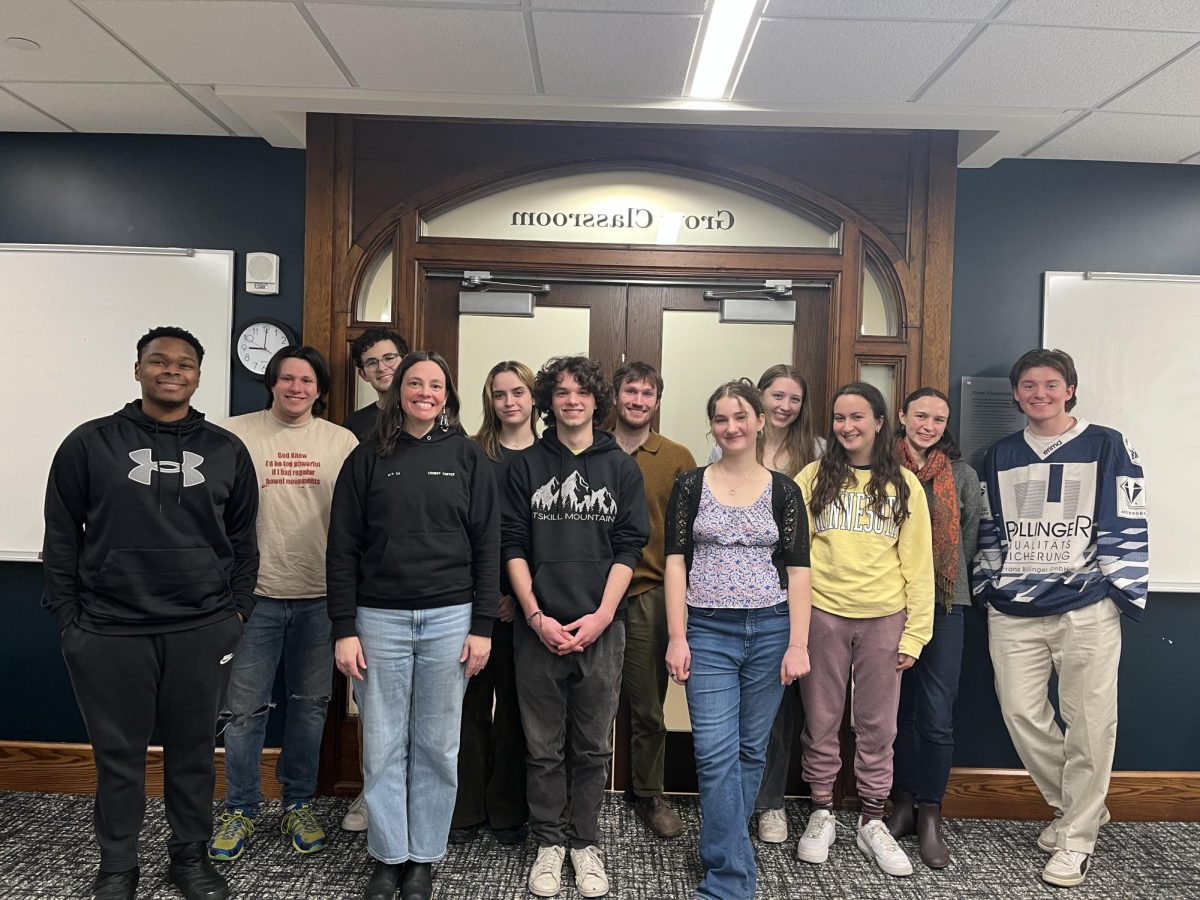Through Sunrise Carleton, a campus organization working toward climate justice and other progressive causes, Carleton students have gotten involved with Northfield Against Line 3 (NAL 3), a volunteer grassroots organization that is fighting the oil pipeline known as “Line 3.”
The replacement and expansion of Line 3 was proposed by Enbridge, a Canada-based multinational energy transportation company, in 2014. There has been a movement to stop it ever since. NAL 3 has been fighting against the pipeline since 2017, but Sunrise Carleton just started collaborating with them this past summer.
Line 3 is a tar sands pipeline that currently stretches over 1,000 miles from Alberta, Canada, to Superior, Wisconsin, cutting across northern Minnesota. Oil is extracted from tar sands, but due to the sand’s thick, sludgy nature, this process produces significantly more carbon emissions than the processing of crude oil, and moving the tar sands through the pipes requires many harmful and dangerous chemicals.
Line 3 was built in the 1960s, but is now old and cracked. Instead of fixing the old pipeline, or replacing parts, Enbridge wants to build a new pipeline. Enbridge is calling this new pipeline “Line 3” because it will start and end in the same place as the old one, but it will follow a new route.
Ellie Zimmerman, a Carleton senior who is working with NAL 3, said that the problem with this is that “they’re building an entirely new pipeline and their plan is to just leave the old one there to rot.”
One of the founders of NAL 3, who asked to be identified only as Bambi, said the organization is protesting “the climate aspects, the way the tar sands absolutely eviscerate the ecology of the boreal forest region—which is one of America’s best carbon sinks, the way that man camps of pipeline workers bring a huge escalation in sex trafficking and drug trafficking to rural Indigenous areas. So it’s all these different things that we’re fighting in the fight against Line 3.”
Zimmerman originally got involved with NAL 3 through Sunrise, and said that fighting the pipeline is important because “it’s so multifaceted. There’s the environmental impact, there’s the impact to Indigenous communities, there’s all these factors going into it, all the big rich bank guys getting rich off of it.”
Another Carleton student, Aashu Lele ’23, has also been working with NAL 3. Like Zimmerman, he came to the organization through Sunrise, but also because he is interested in climate justice. The pipeline captured his attention because he “feel[s] like it’s the next big pipeline fight in the country.”
Line 3 wouldn’t affect Carleton students immediately; after all, it’s in northern Minnesota, far from Northfield. But over time, Zimmerman thinks it could have an effect. She said, “we wouldn’t see construction or anything but these pipelines leak, they go to refineries which explode or emit toxins. I think people’s hometowns could definitely be affected and we could see the future effects of it on a really large scale. But, the day it goes into effect, not so much.”
So far, the new pipeline hasn’t been fully constructed. The company is still waiting on a final round of permits from several organizations and has faced protests, which have caused delays. Bambi said, “We have used protest and non-violent direct action led by Indigenous people to intervene and delay that process as much as we can in the last couple of years, but we expect things to heat up a lot more after November and into the spring.”
According to the Enbridge website, there are several departments that need to approve the permits for the beginning of construction. The two primary agencies are the Minnesota Department of Natural Resources and the Minnesota Pollution Control Agency. These two agencies would grant Enbridge the license to cross public waters and public lands, an endangered species permit and an air quality permit.
Other unapproved permits that are vital to the construction of the line are tribal permits and authorizations from the Fond du Lac Band of Lake Superior Chippewa, as the pipeline would directly affect their land.
If all goes as planned for Enbridge, they will begin construction on November 14. Zimmerman said the response to this will be that NAL 3 will “really go into full protest mode”, with the goal of causing enough trouble and delays that the pipeline becomes a money-losing operation rather than a money-making one.
The hope is that the construction does not get approved, but if it does, Bambi said NAL 3 will continue to fight the pipeline, as “the danger of the pipeline is even more so once it’s actually finished and there’s oil flowing through it.” The organization “will continue the fight against those things [the negative impacts] no matter what,” Bambi added.









